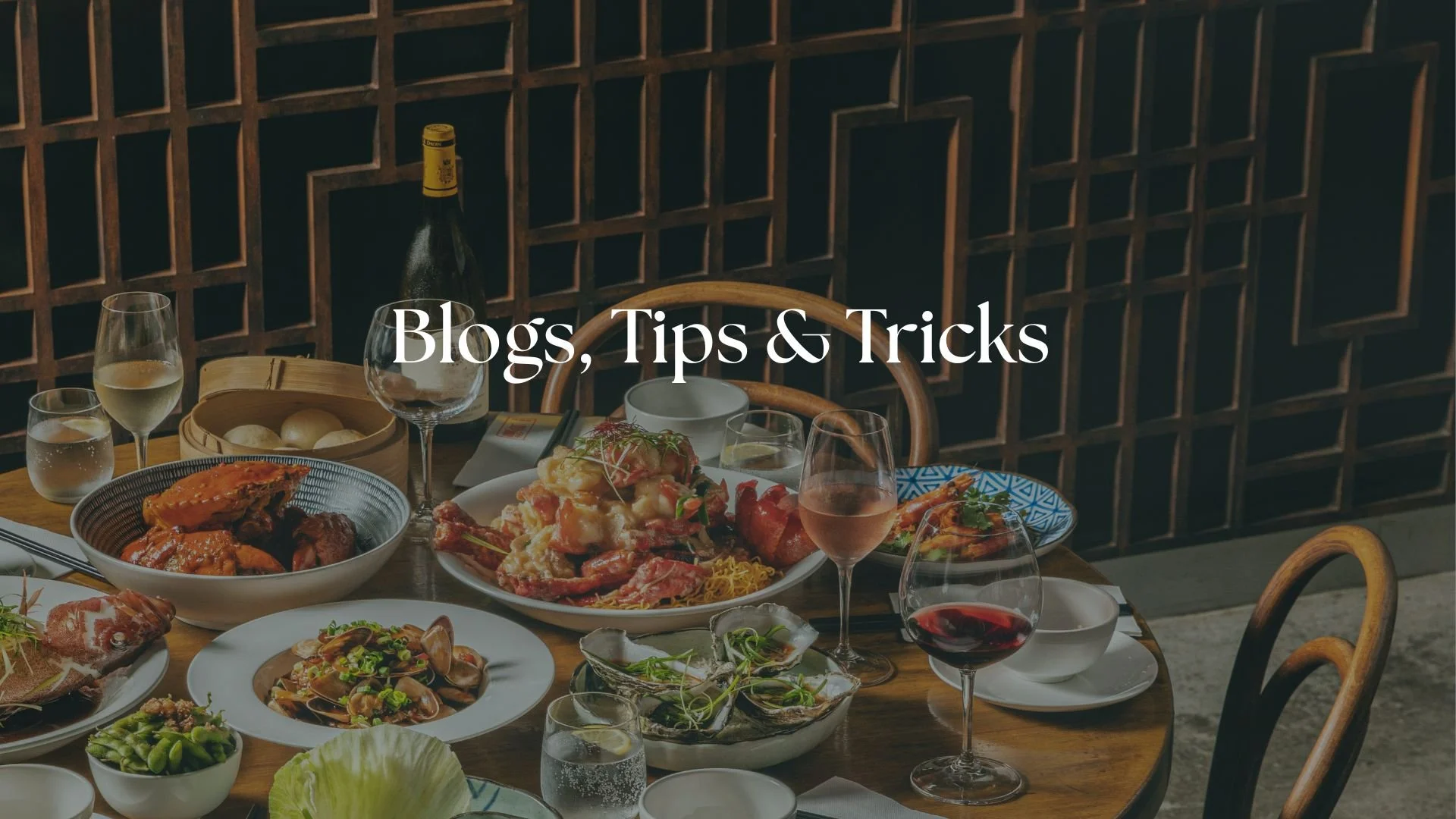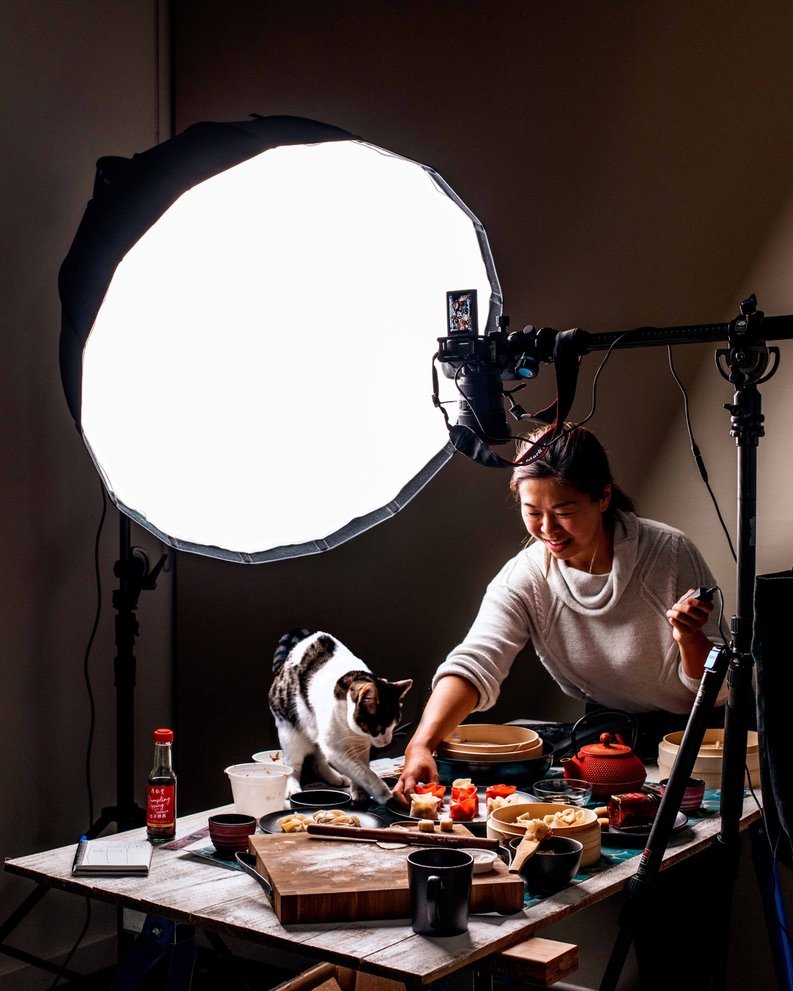That Fraudulent Feeling: Owning My Imposter Syndrome
That Fraudulent Feeling: Owning My Imposter Syndrome
Let's start with an uncomfortable truth, one that might resonate more than you expect: I have Imposter Syndrome.
There, I said it. It feels vulnerable laying it bare, but if there's one thing I've learned navigating the creative and business world, it's that honesty about our struggles is often the first step towards managing them. And on that note of honesty, let me venture another truth: you probably have it too, or at least wrestle with its insidious whispers from time to time.
That persistent, nagging feeling that you're not good enough, that your accomplishments are down to luck or timing, that any moment now someone will pull back the curtain and expose you as a complete fraud… sound familiar? It’s a heavy burden to carry, especially when you’re pouring your heart and soul into your work. For me, understanding where this feeling came from was a long journey, one that started long before I ever picked up a professional camera.
From 'Gifted Child' to Drowning in the Pool: The Origins of My Imposter Syndrome
Cast your mind back with me.
When I was younger, the world seemed to affirm my capabilities constantly. Adults labelled me smart, intelligent, quick to learn. I excelled in various areas, and frankly, it felt good. I absorbed those labels, internalised them. I felt like I was among the best, maybe even the best in my immediate circle. There was a sense of power in that capability, a confidence bordering on certainty. Sure, there were other smart kids, and a healthy rivalry existed, pushing us all, but deep down, I carried the quiet conviction that I had an edge. Competition felt like a stimulating game I was equipped to win.
Fresh out of high school, trying to find my footing as an adult.
But as life progresses, the playing field inevitably expands. High school arrived, bringing a larger, more diverse pool of peers. The competition intensified. Suddenly, maintaining that top spot required significantly more effort, more vigilance. The game started feeling less like fun and more like a relentless battle. While I still achieved academic success and collected some awards, the foundation of effortless superiority began to crack. I realised I wasn't just competing with a handful of rivals; I was competing with everyone who cared about academic standing. It was exhausting.
Then came university. The pool didn't just expand; it became an ocean. Surrounded by thousands of bright, ambitious individuals drawn from across the country and beyond, the notion of being the best felt not just challenging, but utterly impossible. The sheer scale of talent and intellect was overwhelming. And somewhere in that overwhelming realisation, a switch flipped within me. If I couldn't realistically aim to be the absolute best anymore, why even try?
That seemingly logical, perhaps self-protective, decision had a corrosive side effect. The more I consciously let go of the pressure to be the best, the more I unconsciously started to believe I wasn't good at all. The narrative shifted from "I can't be number one" to "I'm actually not capable." I internalised a sense of inadequacy. No amount of external validation – no compliment, no praise for good work, no encouraging words – could penetrate this newly formed belief. Compliments felt like luck, successes felt like flukes I couldn't replicate. Without realising it, I had cultivated the perfect breeding ground for, and eventually succumbed to, Imposter Syndrome.
Out of university. At a casual gathering for a networking event. I have just accomplished making a feature film, yet finding it hard to participate out of fear I will be judged.
The Daily Realities of Feeling Like a Fake
IS is so exhausting that most days, I want to be in peace.
The dictionary defines Imposter Syndrome with clinical detachment – a psychological pattern where individuals doubt their skills, talents, or accomplishments and have a persistent internalised fear of being exposed 1 as a "fraud." When I first encountered the term, I wasn’t sure it fit. It sounded… dramatic. That was until someone else, observing my patterns of self-doubt and dismissal of praise, pointed it out. And because I already felt like a fraud, paradoxically, I believed them.
Imposter Syndrome manifests differently for everyone, but for me, it often plays out like this:
The Comparison Cycle: I’ll finish a photoshoot or a project and feel genuinely proud, maybe even exhilarated. Then, a few days or weeks later, I'm scrolling online, perhaps looking for inspiration here in Australia or internationally. I see someone else's incredible work. Instantly, my own recent accomplishment shrivels in my mind. "Wow," I think, "my work absolutely sucks compared to that. Why am I even bothering? I'll never reach that level." The pride evaporates, replaced by inadequacy and creative paralysis.
The Pre-Delivery Panic: I'll confidently pitch for and win a project. I know I have the skills, I plan meticulously. But as the deadline approaches, a creeping dread sets in. Panic attacks might surface. My internal monologue turns vicious: "Why did I ever think I could do this? They're going to hate it. I'm going to let them down. I clearly can't deliver." The initial confidence is entirely forgotten, replaced by overwhelming self-doubt.
Content Creation Paralysis: I sit down to create marketing content, write a blog post, or plan a social media campaign. I browse for ideas, see amazing examples, and then… freeze. Looking back at my own concepts, the inner critic screams: "This is terrible. My ideas are derivative and boring. There's no point putting this out there; it’s nowhere near as good as X, Y, or Z."
The Mundane Becomes Monumental: This insidious doubt doesn't just infect my professional life; it bleeds into everyday tasks. Take the art of making coffee. I used to be a specialty trained barista; I appreciate good coffee. I worked with expensive, high-quality beans. But when I grind them and brew a cup at home, if it doesn't taste exactly like the perfect brew from a top Sydney roaster, the self-attack begins. "Seriously? This is what you call coffee? After all your many years of experience? No wonder you abandoned that career, you clearly weren't cut out for it."
The Downward Spiral: From there, it can escalate with terrifying speed. Wake up feeling a bit slow? Can't immediately nail that first coffee? Suddenly, it's not about the coffee. It's: "I'm slow, therefore I'm lazy, therefore I'm not a good person. Everything I touch today is doomed to fail. I am a failure. People are going to see through this facade eventually. My clients will realize I'm faking it. I'll be laughed out of the photography industry. I’m better off doing absolutely nothing. No one will judge me if they don’t know me, because I will disappear."
Yes, reading it back, it sounds dramatic. But I assure you, in the moment, these feelings are intensely real, visceral, and exhausting.
Finding Leverage: The View from Rock Bottom
Living under this constant barrage of self-doubt is draining. So how have I managed to build a successful business, mentor others, and write this very blog post in spite of it? It was a gradual, conscious shift catalysed by a significant life change.
Just moved to Sydney, Australia and feeling hopeful :)
When I moved to Australia from New Zealand, I arrived with little more than a suitcase, AU$2000, and a hefty $50k student loan burden (with interest). It was, in many ways, a rock bottom moment – new country, no family, no career, no network, significant debt. As I sat on the balcony of my temporary accommodation, staring out at Sydney's Westfield Tower in the distance, a different kind of internal monologue began. It wasn't about being the best or worrying about fraudulence; it was about survival and sheer determination.
I told myself: "You are going to make it. Forget the past baggage, forget the self-doubt for now. Just focus on the day-to-day. Put one foot in front of the other. Don't obsess over what you're not. Focus on what you are, right now, and what you are determined to become."
It was rough, undeniably. But hitting that low point provided a strange kind of leverage. Every time the Imposter Syndrome whispered "You can't do this," a louder, more pragmatic voice countered: "You're already at the bottom. You have nothing. You are nothing. So this means: You will become something. You will accumulate. The only way is up. Keep going!"
Working from home during the pandemic. With no stable income, no career, I am trying to make my business work with what I had.
Rewiring the Narrative: Action Over Perfection
This "keep going" mantra became my default setting. It wasn't about magically erasing the negative thoughts, but about developing counter-arguments and prioritising action:
When I looked at my photos and thought they were rubbish, the counter became: "It's better than yesterday's attempt. Keep practicing. Keep going!" Progress, however small, became the focus.
When I hesitated to post content or share work I deemed imperfect, the thought became: "Doing something is infinitely better than doing nothing out of fear. What’s the absolute worst that could realistically happen? Keep going!" Action trumped perfectionism.
I started consciously redefining "best." I acknowledged I couldn't be the best photographer, writer, or entrepreneur in the world – the metrics are impossible, the comparison pool infinite. But I could strive to be my version of best. This meant focusing on my own goals, my own progress, my own satisfaction in the work itself, rather than seeking external validation or comparing myself to others' curated highlight reels. Accomplishing something for me became the new benchmark.
The Paradoxical 'Gift' of Imposter Syndrome
It sounds strange, perhaps even masochistic, but in a way, Imposter Syndrome has inadvertently forged resilience. It’s a constant, uncomfortable reminder of past struggles – the times I felt unsupported emotionally, the bullying I endured, the poor choices I made, the failures, the anger, the times I let others diminish me. It reminds me of hitting rock bottom.
During a time when all is without hope, I try to find things to smile and be grateful for.
Just as understanding lows helps us appreciate highs, perhaps this persistent feeling of inadequacy serves a paradoxical purpose: it keeps me humble. It prevents me from resting on my laurels, from becoming complacent or arrogant. It fuels a continuous drive to learn, improve, and prove (primarily to myself) that I am capable. Imposter Syndrome is, without a doubt, a bitch. It steals joy and breeds anxiety. But acknowledging its presence, understanding its roots, and recognising its patterns allows me to manage it, rather than be ruled by it.
You Are Not Your Imposter Syndrome
Where I am today is the result of everything I’ve worked so hard towards. I won’t give up!
Here’s the most crucial takeaway: Imposter Syndrome is not your identity. It's a pattern of thought, often deeply ingrained, but it is not you. The very fact that you feel like an imposter is often the clearest indication that you're not. Frauds don't typically worry about being frauds; they're too busy deceiving. Feeling IS often means you care deeply about your work, you hold yourself to high standards, you're aware of how much there is still to learn, and you respect the field you're in. Deep down, beneath the clouds of doubt, you are the real deal.
You are not your syndrome. You are you. You are navigating your unique journey, striving, learning, and creating. And that, syndrome or no syndrome, is pretty damn awesome.
I'm awesome. You're awesome. Let's keep going. There’s only up from here.
Here is a really great source for Imposter Syndrome by Jen Coken.
And a video too You Were the Smart Kid. So Why Do You Feel So Lost Now? by Let’s Talk Psychology.









